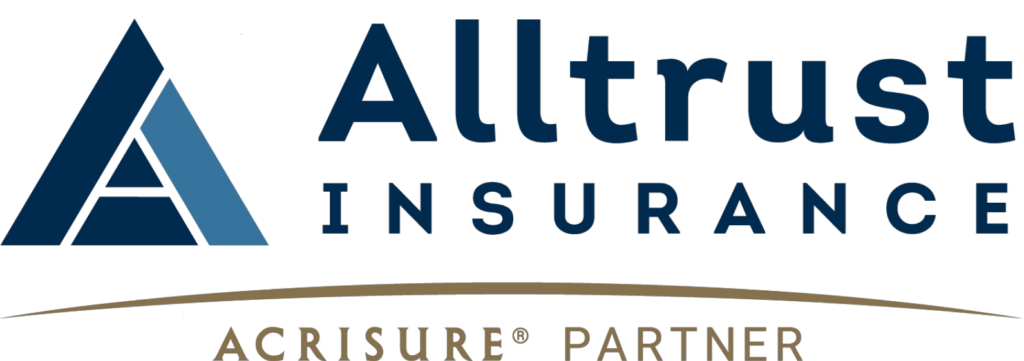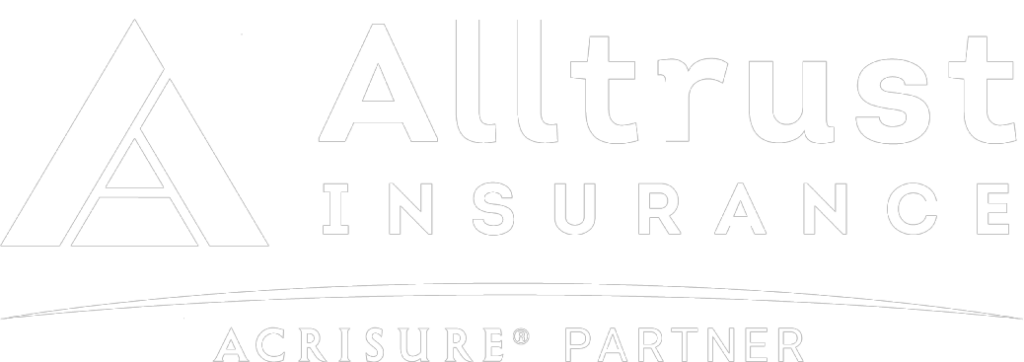This post was last updated on January 4, 2020
As the number of reported cases of the novel coronavirus (COVID-19) continues to rise, Alltrust Insurance aims to keep you and your employees up to date on coverage provided by your healthcare provider, and provide you with helpful guidance to lead your business. We are encouraging everyone to follow the guidance provided by local health authorities, the World Health Organization, and the U.S. Centers for Disease Control and Prevention.
Guidance for Businesses
New: Stimulus Bill Includes Ban on Surprise Medical Bills
On Dec. 27, 2020, President Trump signed the Consolidated Appropriations Act, 2021 into law. The Act includes a $900 billion coronavirus relief package that provides funding for unemployment benefits, direct economic payments to individuals, vaccine distribution and rental assistance. It also includes the No Surprises Act, a ban on surprise medical bills, which takes effect beginning in 2022. Read More
New: Stimulus Bill Includes Temporary Special Rules for FSAs
On Dec. 27, 2020, President Trump signed the Consolidated Appropriations Act of 2021 into law. The Act provides temporary special rules for health and dependent care flexible spending accounts (FSAs) that give employees additional time to use these funds. Read More
New: Understanding the $900B Stimulus Package
On Monday, Dec. 21, 2020, Congress passed an emergency stimulus package designed to deliver approximately $900 billion in COVID-19-related aid. Notably, the bill provides funding for unemployment benefits, small businesses, direct economic payments to individuals, vaccine distribution and rental assistance. This article provides an overview of what is included within the emergency relief bill. Read More
Time Tracking in the Time of COVID-19
Keeping track of employee productivity has always been important, but it’s even more significant in the wake of the COVID-19 pandemic. This article outlines an employer’s general time tracking responsibilities and offers some best practices to follow. Read More
New: Cyber Safety for Your Company and Employees
Thousands of small businesses are devastated by cyber-attacks every year. We want to ensure that your business has not only taken the proper precautions to avoid these scams, but has also put a plan in place in case of a successful breach. Read More
New: Driving HR Efficiencies with Technology
Improving workplace efficiency is about helping employees work smarter, not harder. This article discusses how HR departments can improve efficiencies through process improvements and technology that can help shift their focus from administrative tasks to high-impact tasks—like strategy, employee engagement and change management.Read More
EEOC Adds 18 New FAQs on Coronavirus and the ADA
On Sept. 8, 2020, the Equal Employment Opportunity Commission (EEOC) added 18 new answers to frequently asked questions (FAQs) to its existing guidance on how employers should comply with the Americans with Disabilities Act (ADA) while also observing all applicable emergency workplace safety guidelines during the coronavirus (COVID-19) pandemic. Read More
FAQs about Leave under the FFCRA
With school already or soon-to-be back in session, ThinkHR has received numerous questions from employers about leave under the Families First Coronavirus Response Act (FFCRA). They created an FAQ to help give you answers. Read More
CDC Updates Guidance for Quarantine After an Exposure to COVID-19
As the coronavirus (COVID-19) pandemic continues, employers are discerning appropriate actions to prioritize health and safety within their workplace. Organizations are responsible for protecting the health of their employees, which can include recommending self-quarantine to employees who have been exposed to COVID-19. An exposure to COVID-19 may take place within the workplace, or an employee may report an exposure outside of the workplace. Read More
President Trump Orders Payroll Tax Deferment
On Aug. 8, 2020, President Donald J. Trump ordered the U.S. Department of Treasury (the Department) to defer collecting certain payroll taxes from Sept. 1 to Dec. 31, 2020. Because the order is for a deferral, the unpaid taxes will need to be recouped at a later time, unless the Department can find an avenue to eliminate the obligation to pay the taxes. Read More
CDC Resuming Business TOOLKIT
The Resuming Business Toolkit is designed to assist employers in slowing the spread of COVID-19 [1] and lowering the impact in their workplace when reintegrating employees into non-healthcare business settings. Not sure whether you’re ready to resume business? Use CDC’s decision tools as a start. Read More
President Trump Signs Executive Order on Pandemic Relief
President Donald Trump recently signed an executive order and three memorandums to address pandemic relief in response to the ongoing impact of the coronavirus (COVID-19) pandemic. After negotiations for a relief package between the White House and lawmakers collapsed, the executive actions extend pandemic unemployment benefits, student loan payment deferrals, eviction protections for renters and payroll tax cuts. Read More
HR Toolkit – Returning to Work Post-COVID-19
This HR Toolkit includes everything employers need to prepare them for reopening their businesses post-coronavirus. It combines expert guidance and thought leadership with a fully printable appendix, including checklists, posters, workplace forms and more.Read More
CDC Guidance Regarding COVID-19 Testing Scenarios
According to the Centers for Disease Control and Prevention (CDC), employers may utilize employee testing as part of a comprehensive approach to reducing the spread of COVID-19 in the workplace. This HR Insights article provides an overview of each of the five scenarios as described by the CDC. Read More
DOL Releases More Q&As on Workplace Laws and Coronavirus
On July 20, 2020, the U.S. Department of Labor (DOL) announced the agency’s publication of additional guidance on applying federal employment laws in the context of the COVID-19 pandemic. The guidance is in the form of questions and answers added to sets of Q&As the agency issued earlier in the year about the operation of the federal Family and Medical Leave Act (FMLA), the Fair Labor Standards Act (FLSA) and the Families First Coronavirus Response Act (FFCRA) in workplace situations involving COVID-19. Read More
Additional Coronavirus (Covid-19) Updates
Webinars
Post COVID-19 Human Resource Issues for Employers
From August 12, 2020 | 2:00pm
Managing the COVID-19 epidemic at its height was a difficult experience for both employers and employees as it involved numerous human resource hurdles never before faced by organizations. Returning to some sense of normalcy will also require facing employee and business issues not previously addressed by organizations historically. This webinar is intended to provide employers with a roadmap to attempt to get their business on the road to recovery in a post-COVID-19 environment. Register to Watch
Working Remotely
Working From Home During a Coronavirus Outbreak
Working from home can be challenging, especially when you’re not used to it. This article covers some best practices for employees who may need to work remotely due to a coronavirus outbreak. Download our free Guide to Managing Remote Workers
Engaging Remote Employees During the Coronavirus Pandemic
The coronavirus disease 2019 (COVID-19) pandemic has caused unprecedented changes for many industries. As social distancing is encouraged, gatherings with over 10 people are banned and stay-at-home or shelter-in-place orders for all nonessential employees are issued, many employers are asking their employees to work from home. Read More
How to Survive Working from Home — While the Kids Are Home, Too
With schools closing across the country in response to COVID-19, running a business from home just got a lot more challenging. Here’s how to survive. Read More
Carrier Updates
Those with conditions, such as common colds or other mild illnesses, we suggest reaching out to your telemedicine provider. These visits are ideal for asking general questions and can be conducted with ease from mobile devices, tablets, or computers. Telemedicine visits are not intended for COVID-19 testing or treatment. If you have been around someone who has the virus and think you have it, call your primary care doctor.
Below is the information on what services and costs are covered for the coronavirus (COVID-19) by carrier.
Information on Worksite Portability Options
Webinars
Webinar Recordings and Helpful Information
- Coronavirus Update: Together We Are Stronger from Wednesday, April 15, 2020 Watch Now
- ThinkHR: COVID-19 Updates and Employer FAQ from March 31, 2020 Watch Now
- Alltrust Insurance : Coronavirus HR Update from March 26, 2020 Watch Now
- Florida Blue: Novel Coronavirus – What you should Know Webinar Recording from March 24, 2020 FAQs
- ThinkHR: COVID-19 HR Guidance and Best Practices Webinar Recording from March 19, 2020 Watch Now
- UnitedHealthcare Global: COVID19 Webinar Recording from March 13, 2020 Watch Now
Helpful Forms, Posters, and More
- New: Families First Coronavirus Response Act (FFCRA or Act) poster: Download
- COVID-19 Cleaning Log Download
- Guidelines: Opening Up America Again Download
- Emergency Family and Medical Leave Expansion Act – Leave Request Form Download
- Families First Coronavirus Response Act (FFA) Flow Charts on Emergency FMLA and Emergency Paid Sick Leave. Download
- Paid Sick Leave and Expanded Family and Medical Leave Under The Families First Coronavirus Response Act
Please ensure this Employee Rights poster is placed in a visible location with your current workplace posters. Download Poster - The Effect of Military Leave on Health Insurance Coverage and Flexible Benefit Plans Download Poster
Caution: Depending on the particulars of your workplace, these articles and answers may be subject to other legal constraints such as collective bargaining agreements, individual contracts and other statutory obligations. State and local laws and ordinances will also need to be consulted.




